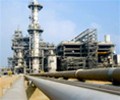

There is real danger that Europe will see shortages of natural gas this winter, combined with sharp increases in price for the commodity.
“Going into the current winter with less in storage, Europe is walking a tightrope — and it wouldn’t take a huge gust of wind to knock us off,” Jack Sharples, a research fellow at the Oxford Institute for Energy Studies, told Politico. “All it would take is for some [liquefied natural gas] projects currently offline to not come back on, or some unplanned maintenance on a pipeline bringing gas into Europe, or just another cold winter.”
The EU has the capacity to store over 117 billion cubic meters (bcm) of natural gas, or roughly a fifth of its annual consumption, according to Gas Infrastructure Europe.
Currently, EU storage facilities are filled to only 60 per cent capacity, or just under 70 bcm of gas. That needs to get up to at least 80 bcm by October 1 to ensure a proper buffer against market fluctuations through winter, Sharples said.
Europe got through the winter last year because demand was low as economic activity had been reduced by the pandemic. This year, there has been a strong rebound of industrial production and consumer demand that is using up natural gas supplies.
Meanwhile Russian supply is dwindling. ““European gas fundamentals remain tight, with the persistent weakness of Russian supply as the main source of concern,” Engie EnergyScan analysts said in a note on Monday. There is speculation that Russia is holding back on supplying natural gas to Europe until the Nordstream 2 pipeline is up and running.
And there have been a number of technical issues at other global suppliers, leading to a loss on an annual basis about 20 bcm worth of LNG supply, which is 5 per cent or so of the market,” Mike Fulwood, a senior research fellow at the Oxford Institute, told Politico.
Natural gas prices in Europe and the UK have already risen to some of the highest levels on record, according to GlobalPetrolPrices.com.
In the UK, one kWh of natural gas costs households £0.039, and businesses £0.030. This is the highest price since 2005.
In Europe, prices have hit €40 per megawatt hour for the first time.
Driving these price increases is also the diversion of much natural gas to Asian markets where prices are even higher.
There is, unfortunately, little likelihood of a decrease in natural gas prices, and the best that Europe can hope for is a mild winter to slow demand.
BP’s chief financial officer Murray Auchincloss said this week that he did not expect prices to ease significantly until 2022 at the earliest, and even then there is a great deal of uncertainty.
Source: Cyprus Mail